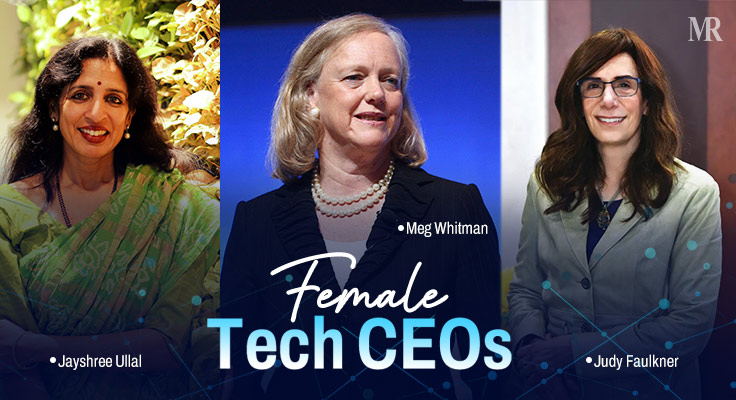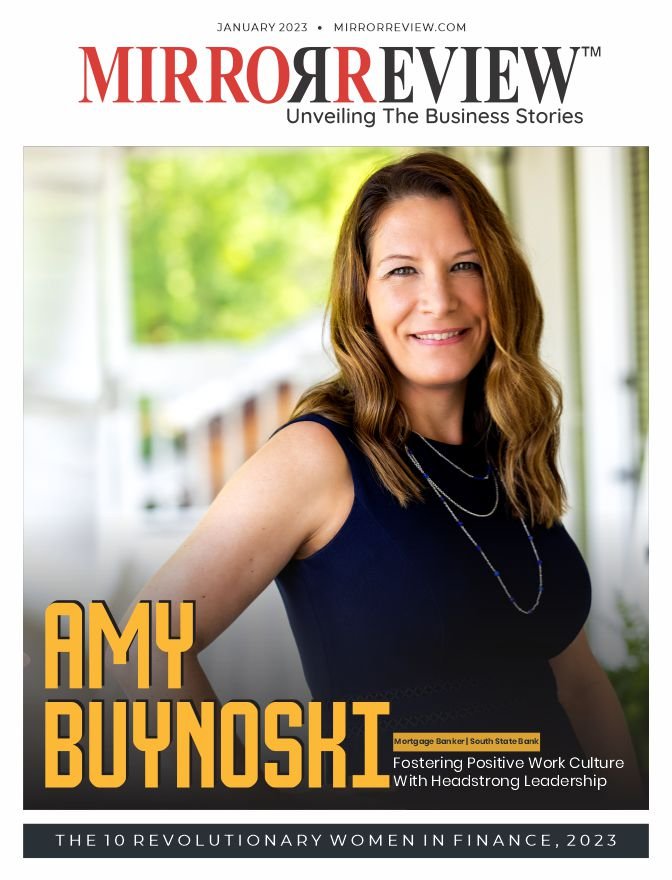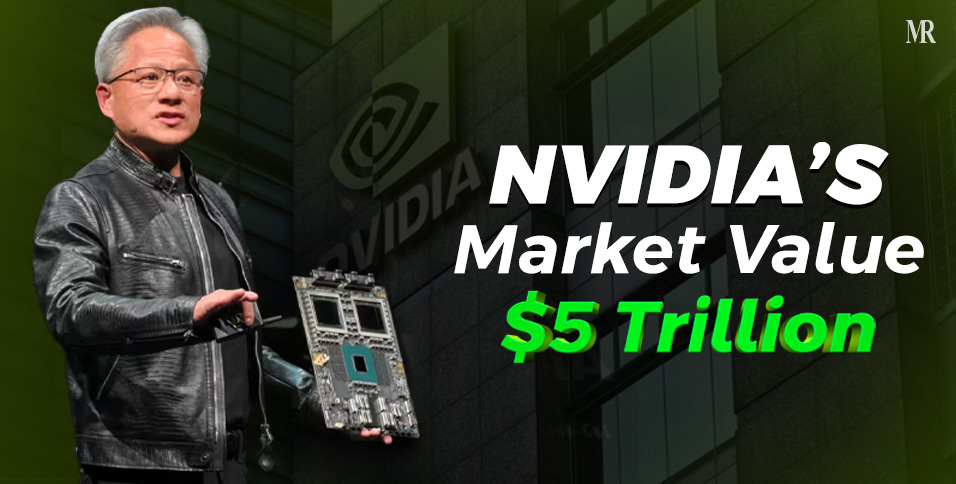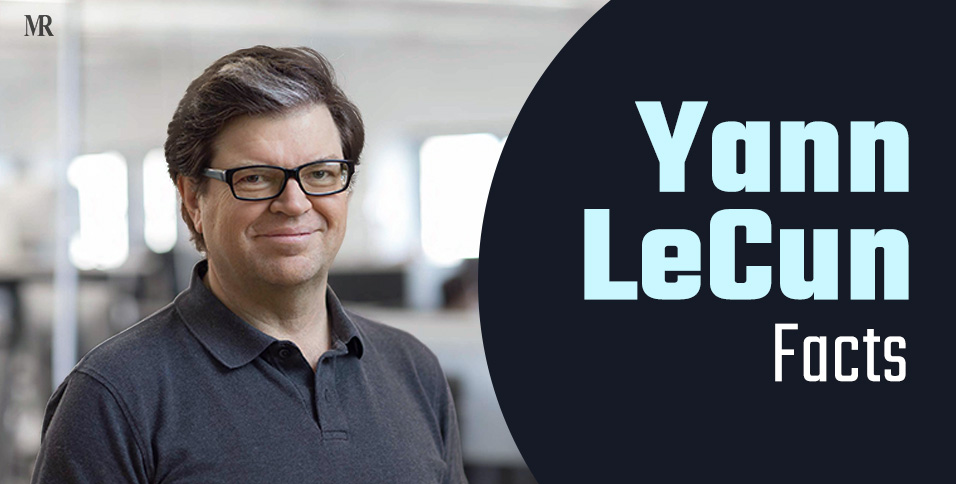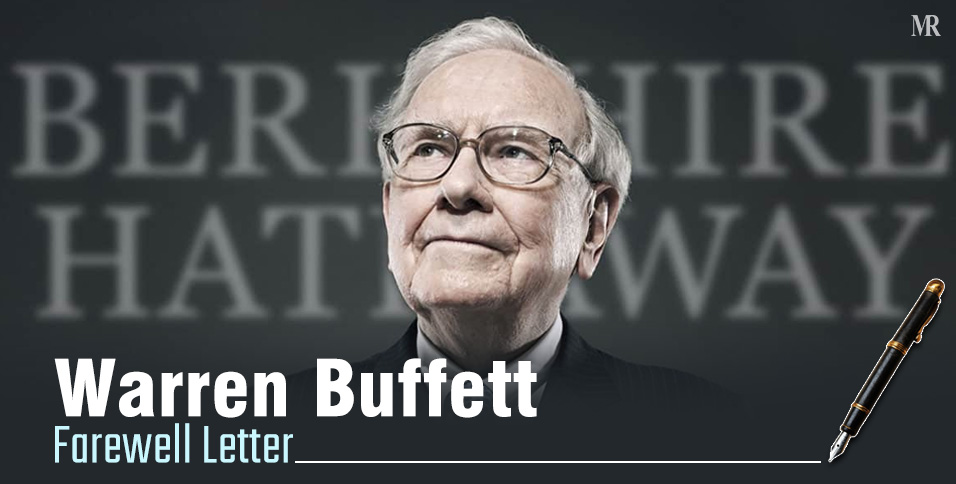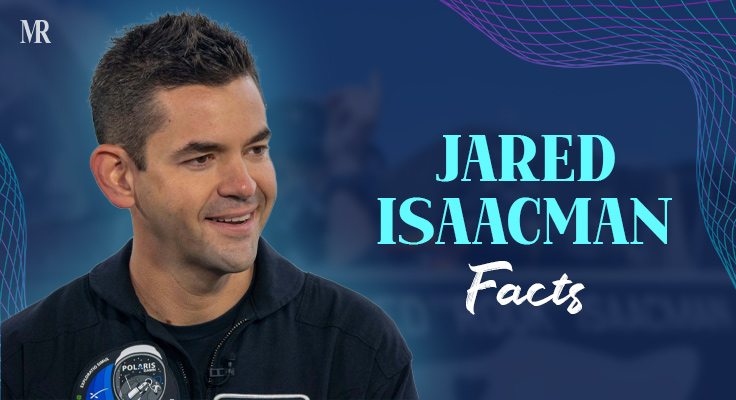Ever wonder how someone actually builds a billion-dollar tech empire? We’re not just talking about theory; we’re diving deep into the real-life stories of five powerhouse female tech CEOs. These women didn’t just participate in the tech boom—they shaped it.
From creating revolutionary electronic health records from a basement to conquering IT solutions and pioneering cloud networking, their journeys are just incredible.
What’s amazing is that each one took a completely different path to reach that billionaire status. Their stories are more than just inspiring; they’re a masterclass in brilliant business innovation, grit, and what it takes to build something that lasts. Let’s get into their unique strategies!
Let’s Explore How Female Tech CEOs Achieved Billionaire Status & Wealth
This table is your cheat sheet! Here’s a quick look at the “secret sauce” each CEO used to build her fortune.
| CEO | Company | Net Worth | Core “Money-Making Secret” |
| Judy Faulkner | Epic Systems | $7.8 billion | The “No-VC, No-IPO, No-Acquisitions” Doctrine |
| Thai Lee | SHI International | $7.5 billion | Relentless Reinvestment & The “AI Pivot” |
| Jayshree Ullal | Arista Networks | $6.6 billion | Software-First Disruption & Targeting “Cloud Titans” |
| Meg Whitman | eBay / HP | $4.2 billion | Master of M&A and Professional Scaling |
| Weili Dai | Marvell Technology | $3.3 billion | The “Customer-Facing” Technical Founder |
Let’s Analyse The Billion-Dollar Journeys
1. Judy Faulkner: The “Anti-Silicon Valley” Titan Who Did It Her Way
- The Journey: From Basement Coder to Healthcare’s Most Powerful CEO
Picture this: it’s 1979. Judy Faulkner is in a Wisconsin basement with just $70,000 in startup money and two co-workers. She’s founding a company, originally named Human Services Computing, and get this—she wrote the initial software code herself!
Her background was perfect for it: a bachelor’s in mathematics from Dickinson College and a master’s in computer science. During that master’s program in the 1970s, she was already working on a system for physicians focused on computing in medicine. Fast forward to 2013, and Forbes had a new name for her: “the most powerful woman in healthcare.” What a journey!
- Unique Strategy: The “No-VC, No-IPO, No-Acquisitions” Doctrine
So, what’s her secret? It’s her strict “no venture capital, no private equity, no IPO” policy, which has been in place for decades. Her core principles are simple but powerful: “do not go public,” “do not acquire or be acquired,” and “software must work.”
This approach allowed Epic to stay independent and avoid outside interference. The company is privately held and has never accepted external investment or made an acquisition. That shows an unshakable belief in their own comprehensive software solutions.
- Company Achievements: Dominating U.S. Healthcare Records
Under her leadership, Epic Systems became the leading vendor of electronic health records (EHR) systems. The numbers are staggering. In 2024, Epic saw its largest-ever net gain in hospital market share on record, adding 176 facilities and 29,399 beds.
By the end of 2024, the company’s U.S. acute care EHR market share stood at 42.3%, massively widening its lead. That same year, Epic’s revenue hit $5.7 billion. Today, the company serves approximately 2,900 hospitals, 65,000 clinics, 570,000 physicians, and 280 million patients in the U.S. It’s no surprise that for the last decade, Epic has been the top choice for large health systems.
- Wealth Analysis: The 43% Stake in a Private Empire
As of 2025, Judy Faulkner’s net worth is estimated at a cool $7.8 billion. This wealth comes almost entirely from her 43% ownership stake in Epic Systems. Remember that $70,000 investment from friends and family? She never raised a dime from VCs after that.
Here’s something amazing: she regularly sells about $100 million of her Epic shares back to the company annually, with the proceeds directed straight to her charitable foundation, Roots & Wings. After her passing, her non-voting shares will be offered to employees, and her voting shares will go to a trust. And Faulkner has stated she has never personally cashed a single share from her company. How impressive is that?
- Leadership & Contributions: The Giving Pledge Philosopher
Judy is famous for her unconventional and humble leadership, often sitting right among her employees to foster collaboration. She’s also a signatory of Bill Gates’ Giving Pledge, committing to donate 99% of her wealth to philanthropy. Her family foundation, Roots & Wings, is set to grant around $100 million annually to hundreds of non-profits, focusing on supporting low-income children and families.
2. Thai Lee: The “Quiet Giant” Who Built a $16B IT Powerhouse
- The Journey: From Harvard MBA to <$1M Reseller
Thai Lee, born in Bangkok and raised in South Korea, co-founded SHI International in 1989 with Leo KoGuan. She has been the company’s only President and CEO since day one.
With a Bachelor of Arts/Science from Amherst College and an MBA from Harvard Business School, she took SHI International from a simple software reseller with $1 million in sales and transformed it into a global IT powerhouse.
- Unique Strategy: Relentless Reinvestment & The “AI Pivot”
Thai Lee’s strategy is all about “relentless reinvestment” in the company’s growth. This approach fuels the professional development of SHI employees and, in turn, the incredible service they provide to customers.
Lately, SHI has also made a massive strategic pivot toward AI, expanding its capabilities through strategic investments. Lee is confident that SHI has the reach, relationships, and technical expertise to deliver comprehensive AI solutions. The company even provides a “safe and secure sandbox” for customers to develop AI solutions, making sure their data is ready and the models work perfectly before adoption.
- Company Achievements: Growing the Largest Woman-Owned U.S. Business
Under Thai Lee’s command, SHI International has ballooned into a $14 billion IT powerhouse. This makes it the largest woman-owned business in the United States!
In 2021, the company hit $12.3 billion in revenue, a 10% jump over 2020. SHI is now a global provider of IT products and solutions with 35 offices worldwide. Back in 2017, SHI launched AWS Support Services for the public cloud and forecasted managing over $1 billion in customers’ Microsoft Cloud assets. It also surpassed $1 billion in sales with CrowdStrike, its first and fastest pure-play SaaS cybersecurity vendor to hit that milestone.
- Wealth Analysis: 100% Ownership of a Private Giant
As of 2025, Thai Lee’s net worth is estimated at $7.5 billion. Her wealth comes from her co-ownership of SHI International. Forbes recognizes her as the co-owner, CEO, and president of the largest woman-owned business in the U.S., placing her among the richest self-made women in the country.
- Leadership & Contributions: The “No-Spotlight” Leader
Thai Lee is a true visionary leader. Her work has significantly contributed to the tech industry, and she’s a major advocate for women in business. The proof is in the pudding: she maintains an industry-high 99% customer retention rate.
She’s received numerous accolades, including an honorary Doctorate from Amherst College, the Distinguished Alumni Award from Harvard Business School, and Ernst & Young’s Entrepreneur of the Year in 2012. She has also served as a Life Trustee at Amherst College and on the Dean’s Advisory Board at Harvard University.
3. Jayshree Ullal: The Engineer Who Disrupted Cisco from the CEO Chair
- The Journey: From Cisco Senior VP to a 50-Person Startup
Jayshree Ullal, born in London, started her tech career in the 1980s as a senior strategic development engineer at Fairchild Semiconductor. She also spent four years at Ungermann-Bass and then joined Crescendo.
At Crescendo, she became vice president of marketing, working on cutting-edge tech like 100-Mbit/s over copper and first-gen Ethernet switching. She then spent 15 years at Cisco, rising to Senior Vice President of Data Center & Switching. But here’s the twist: in October 2008, Ullal left that powerful job at Cisco to become President and CEO of Arista Networks—a tiny startup with fewer than 50 people.
- Unique Strategy: Software-First Disruption & Targeting “Cloud Titans”
Jayshree’s strategy at Arista was brilliant: focus on software-driven cloud networking solutions. Her target? The “cloud titans” and other large data center environments. Arista aimed to provide disruptive, software-driven solutions in the high-performance switching market.
Ullal often says there is “no AI strategy without a data strategy,” which all starts with the software stack. This intense focus on high-performance solutions for data centers and cloud services is what allowed Arista to grab so much market share.
- Company Achievements: Winning the 100G+ Ethernet War
Under Ullal’s leadership, Arista Networks reported a mind-blowing 49% increase in revenue in 2023. For the quarter ended June 2025, the company’s revenue was $2.2 billion, smashing expectations.
Arista has successfully gained market share in the 100G, 200G, and 400G high-performance switching space. The company’s focus on cloud data centers, which began just four years after its founding, has paid off, showing strong momentum in both cloud and enterprise sectors.
- Wealth Analysis: Billions in Arista Stock (ANET)
That big bet on a small startup? It paid off. According to Forbes, Jayshree Ullal’s net worth soared to $6.6 billion in 2025. She directly holds about 3% of Arista’s shares, and the company’s incredible stock performance is the primary driver of her fortune. As of August 2025, Ullal publicly holds two stocks worth over US$3.8 million, with Arista being the key component. In September 2025, she sold $63,113,565 in company stock.
- Leadership & Contributions: The Engineer-as-CEO
Jayshree Ullal’s leadership has been completely transformative. She guided Arista through a successful IPO in 2014 and built it into a multi-billion-dollar enterprise. Forbes even recognized her as “one of the top five most influential people in the networking industry today.”
She’s won numerous awards, including E&Y’s “Entrepreneur of the Year” in 2015 and the Distinguished Engineering Alumni Award from Santa Clara University’s School of Engineering in 2013. In 2025, Santa Clara University will also award her an honorary Doctor of Engineering degree.
4. Meg Whitman: The “Corporate Scaling Legend” of eBay and HP
- The Journey: The “Teletubbies-to-eBay” Brand Manager
Meg Whitman’s story starts in brand management at Procter & Gamble in Cincinnati, Ohio, from 1979 to 1981. She earned an economics degree in 1977 and an MBA from Harvard Business School two years later.
After moving to California in 1981, she joined the global management consulting firm Bain and Company. Before her most famous role, she held executive positions at Hasbro Inc. (yes, the toy company) and FTD, Inc. (the floral company). Then, in 1998, she became president and CEO of eBay, a tiny company with only 30 employees at the time. She led eBay for 10 years before joining Hewlett-Packard (HP) in 2010/2011.
- Unique Strategy: Master of M&A and Professional Scaling
Meg Whitman is known as a brand-building expert and a business turnaround specialist. Her M&A (mergers and acquisitions) strategy is “very much return-based” and always focused on what’s best for the shareholders.
As CEO of eBay, she justified acquisitions by leveraging the market share they already had. Later, at HP, she famously reversed a decision to sell the PC business and reorganized the company’s businesses into product clusters. She became CEO of HP in September 2011, noting that the company’s costs were rising faster than its revenues.
- Company Achievements: Making eBay a Household Name & Splitting HP
During her decade at eBay, the company exploded from 30 employees to 13,000, with 193 million users. She had promised to significantly increase revenues at eBay, and she delivered.
As CEO of HP, she led one of the biggest corporate moves in history: splitting the company into two new entities, Hewlett Packard Enterprise and HP Inc., in October 2014. This massive decision was aimed at resolving strategic challenges and was influenced by the rising costs.
- Wealth Analysis: eBay Stock, M&A, and the (Costly) Quibi Venture
According to Forbes, Meg Whitman’s net worth is estimated at $4.2 billion. Her wealth was primarily built through her high-level executive roles and her stock holdings in companies like eBay and HP. As of Forbes 2025, she is ranked #362 on the Forbes 400 list.
Her holdings are diverse, including real estate, oil, gas, IT, and healthcare. She has investments in Goldman Sachs’ Whitehall Street real estate funds and was part of investor groups that acquired properties like the Potrero Power Plant site in San Francisco. In 2019, she and her husband also acquired an ownership stake in FC Cincinnati. She also served as CEO of the mobile video platform Quibi, after leading Hewlett Packard Enterprises until 2018.
- Leadership & Contributions: From Corporate Titan to Politics
Meg’s leadership style is characterized by a belief in people doing good jobs, and she transitioned HP’s management style toward transformational leadership. Her principle is that every individual should contribute and derive satisfaction from their work.
Her career also includes a gubernatorial run in California. She was honored by BizWorld.org in 2016 and was ranked #50 in the Thinkers50 list in 2001. In 2021, she was nominated by President Biden as the U.S. Ambassador to Kenya.
5. Weili Dai: The Semiconductor Powerhouse and Master of Partnership
- The Journey: From Semi-Pro Basketball to Silicon Co-Founder
Here’s a background you don’t see every day! Weili Dai was a semipro Chinese basketball player before she co-founded Marvell Technology Group in 1995 with her husband Sehat Sutardja (who was named Inventor of the Year in 2006).
Before co-founding Marvell, Dai began her career in software development. She holds the incredible distinction of being recognized as the only woman co-founder of a global semiconductor company.
- Unique Strategy: The “Customer-Facing” Technical Founder
Weili Dai’s unique strategy was her role as a “customer-facing” technical founder. As president, she was the primary interface for Marvell. She was out there meeting with customers and partners, personally guiding the company’s business direction and strategies.
She was instrumental in forging crucial strategic partnerships for Marvell. Dai is considered a technology visionary, and her business acumen, strategic thinking, product leadership, and extensive personal network all contributed to Marvell’s rapid success.
- Company Achievements: Building Marvell’s Global Customer Base
Marvell Technology Group grew incredibly fast under Dai’s leadership, going public in 2000. The company achieved $3.5 billion in revenue, and Dai was recognized on Forbes’ list of the 100 Most Powerful Women.
At one point, the company held a 70% market share in some areas. Marvell celebrated shipping over 200 million smartphones featuring its advanced technology by global OEMs and operators. The company also focuses on developing technology for 5G networks and advanced AI systems.
- Wealth Analysis: The Marvell (MRVL) Co-Founder Stake
As of January 2025, Weili Dai’s net worth is estimated at $1.6 billion, primarily from her entrepreneurial ventures. Her wealth largely stems from her stake in Marvell Technology Group. After Qualcomm’s takeover of Alphawave, her net worth was estimated to be around $3.3 billion.
In 2022, she officially became a billionaire with a fortune of US$1.4 billion, placing her on Forbes’ list of 25 richest American self-made women. As of 2025, her net worth is $3.23 billion.
- Leadership & Contributions: Championing Women in STEM
Weili Dai is recognized as one of the most successful women entrepreneurs globally. She has received numerous honors, including being named Technology Innovator of the Year in the 2012 Stevie Awards for Women in Business. In 2010, she was named Entrepreneur of the Year by the Hua Yuan Science and Technology Association (HYSTA). Dai is also a board member of the charity Give2Asia, which connects individuals with philanthropic opportunities.
My Opinion
Looking at these five incredible stories, it’s crystal clear that building massive wealth in tech isn’t about luck or just being in the right market. The journeys of these female tech CEOs are a masterclass in strategic genius, sheer grit, and the courage to break the rules.
Their success proves that a deep, almost intuitive, understanding of what the market really needs, combined with a unique leadership style—whether that’s rejecting all outside money or masterfully acquiring new companies—is what creates unstoppable competitive advantages.
These women didn’t just build companies; they built enduring legacies. Their stories powerfully confirm that for today’s female tech CEOs, true, lasting success is built on relentless innovation, a laser focus on the customer, and the wisdom to strategically reinvest in their own vision.
Here Are Some Success Tips Inspired by These Billionaire CEOs
Here are some lessons for every ambitious woman out there, inspired by the lives of these icons:
1. The Faulkner Principle: Your Profit Can Be Your Only VC.
Judy’s “no-VC, no-IPO” strategy is legendary. It proves you can bootstrap your way to the top. Focusing on organic, sustainable growth gives you 100% control, free from external pressures.
2. The Lee Long-Game: Relentless Reinvestment is Your Superpower.
Thai Lee’s “quiet giant” (SHI International) was built by patiently pouring profits back into the company. This highlights how strategic reinvestment can fuel exponential, multi-billion-dollar growth.
3. The Ullal Pivot: A “Step Down” Can Be a Slingshot Up.
Jayshree Ullal left a top job at Cisco for a tiny startup (Arista). That “risk” was an opportunity. It shows that seizing leadership roles in smaller, disruptive ventures can revolutionize an industry and make your fortune.
4. The Whitman Adaptability: Master the Art of Scaling, Anywhere.
Meg Whitman went from toys (Hasbro) to auctions (eBay) to enterprise tech (HP). This proves that elite leadership and scaling skills are transferable. Adapt your strategy, and you can win in any ecosystem.
5. The Dai Connection: Be the “Tech-Savvy” People Person.
Weili Dai’s “customer-facing technical founder” role at Marvell was key. She proves that deeply understanding both the technology and the customer is crucial for driving product direction and dominating a technical market.
FAQs
- Who is the richest self-made woman in tech?
As of Forbes 2025, Judy Faulkner, founder and CEO of Epic Systems, is among the richest self-made women in tech with an estimated net worth of $7.8 billion.
- How did Judy Faulkner start Epic Systems?
Judy Faulkner started Epic Systems (originally Human Services Computing) in 1979 in her basement with $70,000 in startup money and two co-workers.
- What is Jayshree Ullal’s background?
Jayshree Ullal is a British-American billionaire businesswoman who began her career in semiconductor engineering and held senior roles at companies like Fairchild Semiconductor and Cisco before becoming CEO of Arista Networks.
- What companies has Meg Whitman led?
Meg Whitman has held CEO roles at eBay, Hewlett-Packard (HP), and Hewlett-Packard Enterprise, and also served as CEO of Quibi.
- What is Weili Dai known for in the tech industry?
Weili Dai is known as the co-founder of Marvell Technology Group and is recognized as the only woman co-founder of a global semiconductor company, renowned for her technical vision and customer-facing leadership.
Feeling inspired? Share this post with your friends, colleagues, and any ambitious woman you know. Let’s inspire the next generation of tech-leading billionaires together!

